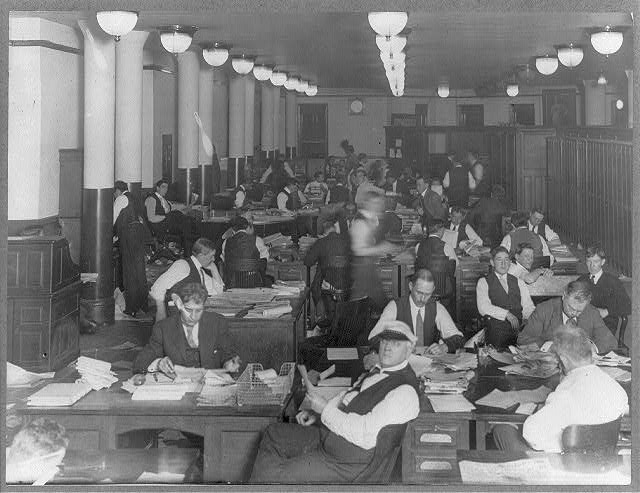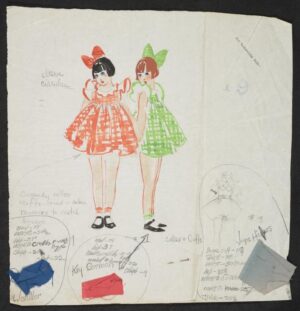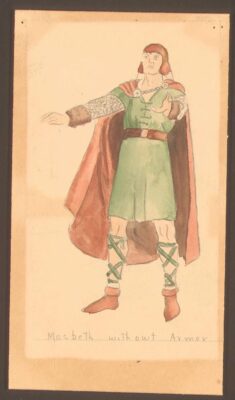Southern Legitimacy Statement: I spent a year living in Charlotte, North Carolina between 1996 and 1997, teaching at UNC-Charlotte and conducting historical research with the help of scholarships from Nations Bank and the St. Andrew’s Society of North Carolina. There were many aspects of white culture that seemed similar to my homeland – the traditional music, the golf courses, deep fried food, genial hospitality – but it was my Black friends who opened my eyes to a whole new world. Southern hip hop was taking off at the time and every weekend was a wild party!
Night Out in Cow Town
We meet for cocktails at a bar close to campus. Mariama, in a yellow and blue sundress, with matching headscarf and large gold earrings in the shape of feathers, looks magnificent as she enters the bar. It’s as if she spent the day getting ready to look radiant instead of being buried in the basement of a library grappling with educational journals. As she walks to where I sit, many heads turn. Pasty frat-boy necks whip and lock to the side, straining to watch as she strides past on thin high-heeled shoes, dazzled by her bright smile and her gleaming, glittery dark skin. Her cinematic walk makes her stand out from the crowd of sweatpants and flip-flops and baseball caps. This is a woman with class and style who looks out of place wallowing in a campus watering hole.
“I don’t think you’re a complete idiot,” is the first thing out of her mouth as she grins, displaying a large dimple on her right cheek. She immediately receives the bartender’s attention and orders a cosmopolitan.
“What do you mean?” She disarmed me.
“For calling me. I know why you did that.” She takes a big sip from my whisky glass – uninvited – as if it’s the antidote to a long day. “Wow, that’s strong!”
“Why do you think I called you?” I say, smiling.
“I think you wanted to talk to me, which is fine. I’m flattered.” She conveys no sense of ever tiring of attention from admirers. She gulps the pink cocktail laid down beside her. “I care about what students need rather than what parents want, which probably meshes with what you want for your child’s school, right?”
“Yes, that makes sense,” I say, coming up for air. “That’s why I’d like to apologize for trying to tell you how to do your job.” As a single parent, I try to do mine.
“Let’s be real! Everyone thinks they know how to teach and have no problem indicating how it should be done.” Mariama waves a finger at the sentiment.
“I appreciate your input,” I state reassuringly.
“To be honest, my master’s thesis is about the tension between the way we educate and the dictates of our culture.”
“That sounds interesting.”
“Well, I don’t want to go on all night about this. We should be talking about fun stuff and drinking our faces off!”
After two more drinks, in order to escape the blue and white of campus, we take a taxi to a nightclub. This place attempts to replicate the New York gay club scene in the middle of a cow town. It is a large red brick warehouse with a stage and a balcony; dark and loud, with black light and dried ice and glow sticks and neon and strobes and huge screens showing music videos. There are also podiums upon which scantily-clad dancers gyrate. The club draws in every gay man and lesbian woman from the greater metropolitan area and beyond.
I follow Mariama in a haze as we snake through the leather and Lycra and PVC and rubber and big hair and shiny boots on our way to the balcony and, hopefully, to some breathing space. She waves and winks and blows kisses at people we pass, saying hi to the guys and stopping to kiss the occasional girl. Again, as happened in the campus bar, all eyes are on her. She is effervescent. I amble in the wake of her element. Nobody touches me. Nobody kisses me. Here, I am invisible. I watch in awe as Mariama works the crowd on her way up the stairs to the bar, bathing in the lustful stares of the women and the envious glances of the men.
At that moment, in the deafening rain of mid-noughties dance hits – the Destiny’s Children, the Gwen Stefanis, the J-Los – I know I am drunk and about to become more twisted when Mariama orders shots. They keep coming to us, elegantly arranged on silver trays like liquid bombs that cause mini-explosions of exuberance as Mariama dances around from side to side in her seat and various upstairs patrons come over to talk and offer little packages of illegal delights.
Close to the end of the night, a gang of colorfully dressed individuals grabs Mariama. They carry her downstairs and decant her onto one of the podiums whereupon she looks up at me, shrugs her shoulders, and proceeds to dance to a song about being filthy and gorgeous. The crowd sings along and Mariama undoes her headscarf and lets her braids swing with the rhythm. She undoes the buttons at the top of her dress, exposing her breasts for the assembled, inebriated throng. Out of my seat, I teeter over the balcony for a full view of the magical chaos below.
As the song reaches its climax and the multiple shots take their toll on her brain, Mariama missteps, and snaps a heel on one of her shoes, causing her to fall. There is a big crowd around the base of the podium which, after an audible collective gasp, catches her as she tumbles spectacularly towards the floor. That moment of slow-motion slapstick prompts my run downstairs. Mariama, prostrate on the ground between two large, concerned, bikers, is laughing uncontrollably and infectiously. Grinning, I thank the staff, help her up, and transport us both out of the club and into a taxi.
An extended backseat kiss confirms the evening will continue into the next day – perhaps beyond – and a quick call to the babysitter removes a potential obstacle. I miss my wife, and I will never fully get over her death, but there are times when I need to stay in the present and embrace life. Such are the joys and the healing properties of a good night out.







